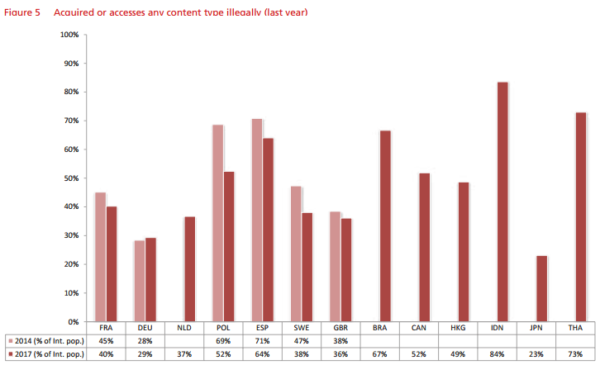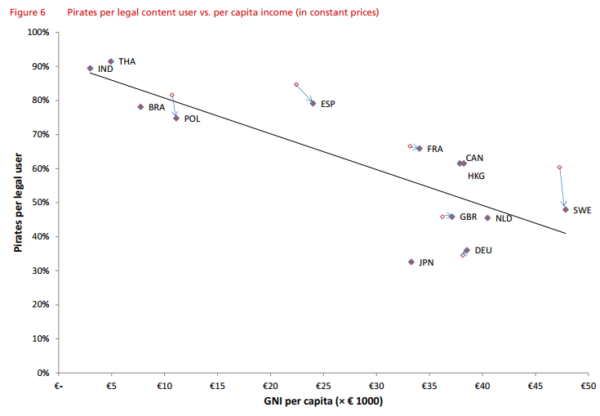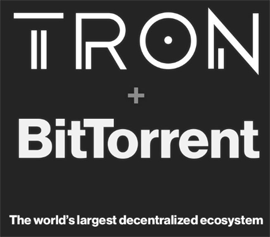Movie & TV Show Companies Want Subtitle Sites Blocked Down Under
jeudi 2 août 2018 à 10:21 After several successful previous applications, last month Village Roadshow Films and Hollywood partners Disney, Twentieth Century Fox, Paramount Pictures, Columbia Pictures, Universal, Warner Bros teamed up with Hong Kong-based Television Broadcasts Limited and Aussie distributor Madman Entertainment Pty Limited.
After several successful previous applications, last month Village Roadshow Films and Hollywood partners Disney, Twentieth Century Fox, Paramount Pictures, Columbia Pictures, Universal, Warner Bros teamed up with Hong Kong-based Television Broadcasts Limited and Aussie distributor Madman Entertainment Pty Limited.
Together the companies filed an application for the broadest-ever blocking injunction at the Federal Court in Australia. If successful, it would compel Australia’s ISPs to block a record-setting 151 domains related to 77 ‘pirate’ sites.
The list of ISPs in the case is familiar. Telstra, Optus, Vocus, TPG and their subsidiaries are all named as respondents in the case with the addition of Vodafone, which was added after recently entering the fixed-line broadband market.
As obtained by ComputerWorld, the list of sites involved is now confirmed as follows:
2ddl; 8maple.ru; 9anime.is; Addic7edAnilinkz; Animefreak; Animeshow; Avxhm; azmaple.com; Bilutv; Bt-scene; Cartooncrazy; Cmovieshd; Ddlvalley; Dnvod; dramacity.io; dramahk.me; Fmovies.io; Glodls; Gogoanime; Hdpopcorns; hindilinks4u.to; hkfree.co; icdrama.se; icdramase; ilovehks.com; IPTorrents; Kantv; Kimcartoon; Kissanime; kisscartoon.ac; m4ufree.com; Masterani.me; Myanimeseries; Nyaa; Nzbplanet; Ondarewatch; Openloadmovies; Opensubtitles.org; Otakustream; Phimbathu; Putlocker.ac; Putlockerhd.co; qooxi.net; Rmz; Rutracker.org; Scnsrc; Seasonvar; Seriesfree; Solarmoviez; Soul-anime; streamtvb.com; Subscene; Subsmovies; Torrentday; Torrentfunk; Torrentmovies; Tvbox; Tw116; Two-movies; Ultra-vid; Usabit; VexMovies; viewasian.tv; Vkool; Vmovee; Watchanimeonline.me; Watchcartoononline.com; Watchcartoononline.io; Watchonlinemovies; Watchseries-online; woaikanxi.cc; Yify-movies; Yifysubtitles; Ymovies.tv; Zimuzu; Zooqle.
What is notable about the list is the inclusion, for the first time, of sites such as Subscene, Subsmovies, YIFYSubtitles. As their names suggest, these platforms offer subtitles for the latest movies and TV shows, something that doesn’t sit well with any of the companies involved but particularly Madman Entertainment which specializes in Japanese anime.
“People unknown have recorded from the motion pictures … then translated the words into different languages and then those websites make available files that contain the subtitles in those languages,” counsel for the applicants told the Federal Court this morning, as reported by CW.
While most previous cases have passed the scrutiny of the Court relatively easily, this case – with the inclusion of subtitle sites – represents new ground. While the standard for infringement of video copyrights has been well tested in earlier applications, literary copyrights (in what are effectively scripts) are now under consideration for the first time.
As a result, the ever precise Justice Nicholas told the parties to ensure that no stone is left unturned in preparing evidence for the Court.
“You better make sure your evidence in relation to that is particularly thorough,” the Judge said.
“There’s some creep here occurring – I don’t say that critically… [but] it’s a new angle so I’ll need to look at that closely.”
Justice Nicholas won’t be short of source material for his studies. There are instances of subtitles sites being blocked in other jurisdictions and several cases where site operators have been successfully targeted (1,2,3) in legal action.
In common with most recent hearings, none of the ISPs listed as defendants in the case turned up for today’s case management hearing. The case itself is scheduled to be heard on September 7.
In parallel, Television Broadcasts Limited is currently tied up in a case of its own after applying for a blocking injunction last year against several unauthorized IPTV services. The case against A1, BlueTV, EVPAD, FunTV, MoonBox, Unblock, and hTV5 is seen as more complex by the Court, so a final decision is still pending.
The full list of sites and more than 150 associated URLs can be found here courtesy of Rohan Pearce.
Source: TF, for the latest info on copyright, file-sharing, torrent sites and more. We also have VPN reviews, discounts, offers and coupons.
 With help from dedicated hardware boxes, live streaming piracy has seen a massive user growth in recent years.
With help from dedicated hardware boxes, live streaming piracy has seen a massive user growth in recent years. 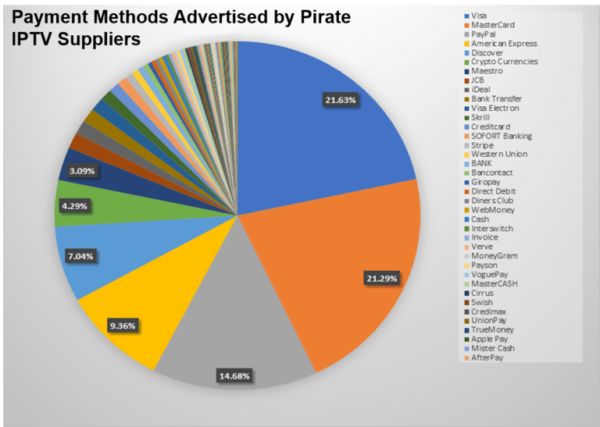
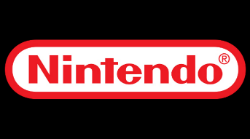

 Over the past decade there have been dozens of detailed reports researching the prevalence and effects of piracy.
Over the past decade there have been dozens of detailed reports researching the prevalence and effects of piracy. 